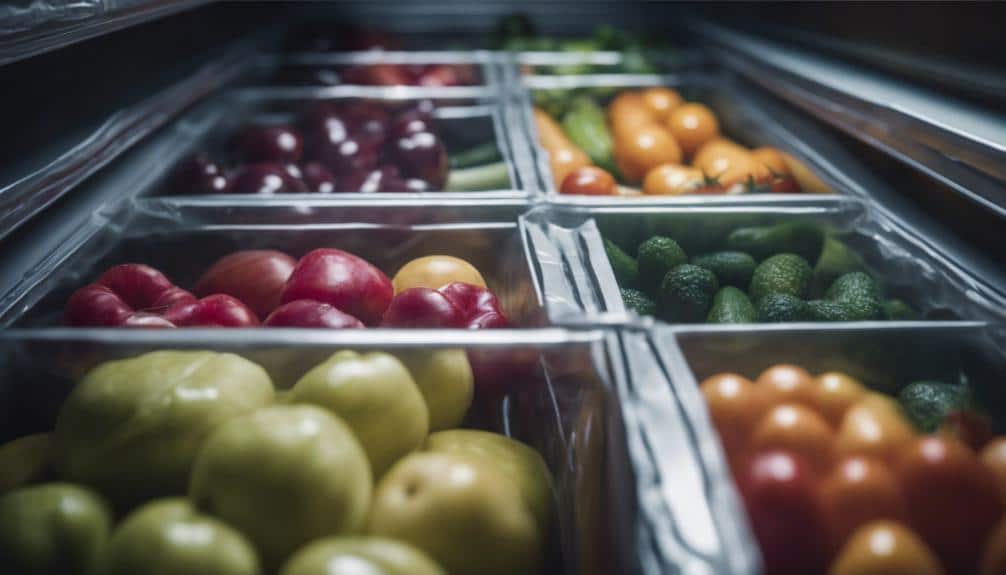Freezing and vacuum sealing produce helps extend shelf life and preserve flavor. This method also prevents freezer burn.
It keeps fruits and vegetables nutritious and fresh.
If you are interested in learning how to do canning and preserving your garden produce read this article. And in this guide we discussed how to build a root celar in your home.
What is vacuum freezing?
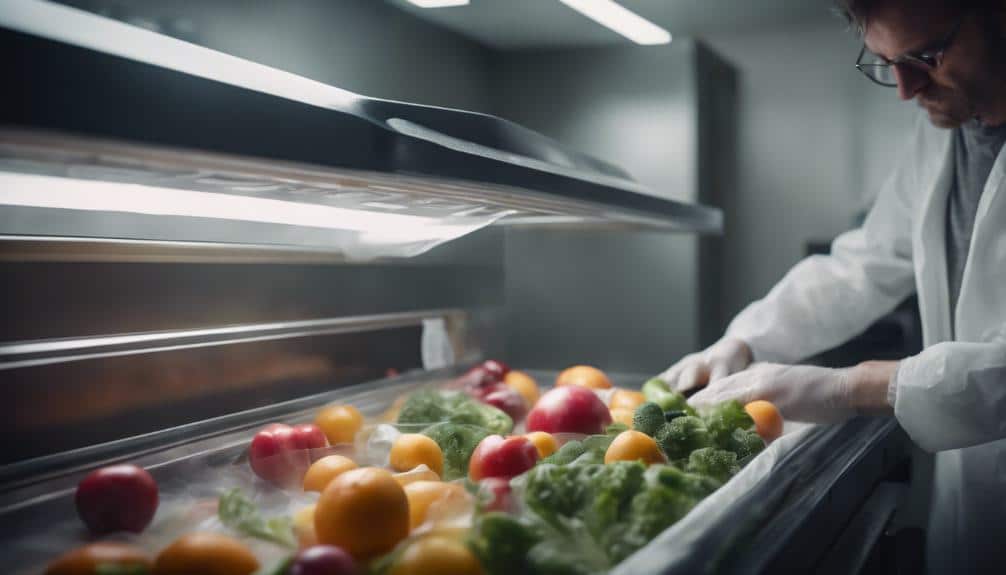
Vacuum freezing involves removing air before sealing food in airtight packages. This method maintains freshness and extends shelf life. Vacuum sealing locks in flavors and nutrients, and prevents freezer burn.
Benefits include longer-lasting food and less waste. Drawbacks include the cost of a vacuum sealer and the need for storage space.
Prepare produce by cleaning and drying it first. For liquids or moist foods, freeze them on a tray before sealing to avoid machine damage.
Ensure there’s enough space at the top of the bag for a proper seal. These steps help preserve your food effectively.
Can you vacuum seal after freezing?
Yes, you can vacuum seal after freezing. Vacuum sealing frozen produce helps extend its shelf life by preventing freezer burn and preserving quality.
Use a vacuum sealer to remove air from the packaging before sealing tightly. Store vacuum-sealed produce in the freezer with a label indicating contents and date.
Benefits of vacuum sealing frozen food
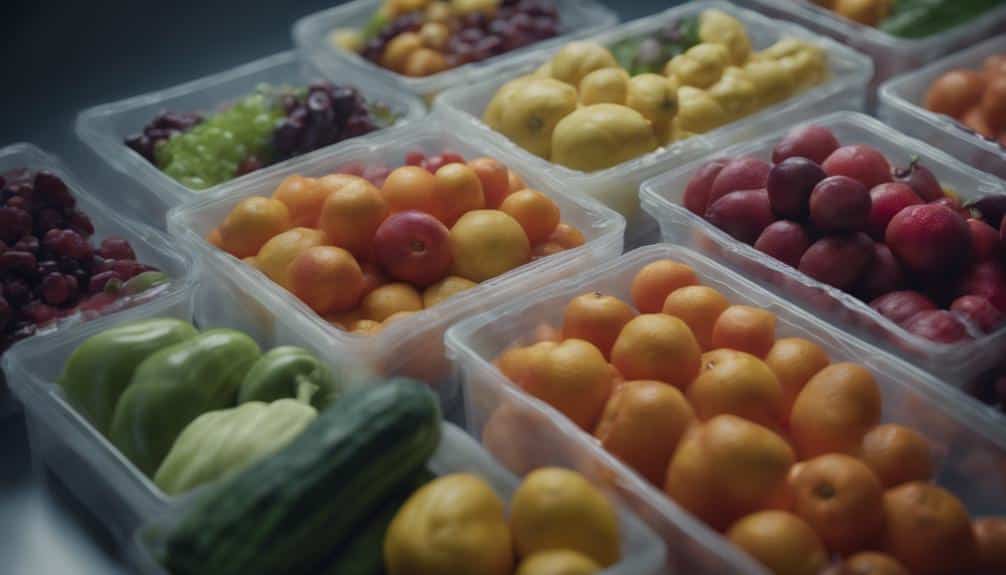
Vacuum sealing reduces the space needed for storage, maximizing freezer capacity.
This process preserves the flavor, ensuring food tastes as good as when first prepared. Vacuum sealing also cuts costs by minimizing waste and simplifying meal preparation.
It’s a crucial tool for efficient food storage.
Disadvantages of vacuum sealing food
Vacuum sealing food has drawbacks. One major issue is that it can increase the risk of spoilage by promoting the growth of bacteria that thrive without oxygen. Proper storage and monitoring are crucial to prevent this.
Another drawback is that once you open a vacuum-sealed package, oxygen re-enters and can quickly degrade the food, reducing its shelf life. Always consider these factors when choosing to vacuum seal food.
How does vacuum sealing preserve food?
Vacuum sealing preserves food by removing air from the package. This method reduces oxygen exposure, which slows food spoilage. It extends food’s shelf life, maintains freshness, and preserves flavor, nutrients, and texture. Without air, bacteria, mold, and yeast can’t grow, preventing food spoilage.
Vacuum sealing also keeps food moist and prevents freezer burn. It’s effective for storing fruits, vegetables, and meats. Vacuum sealing is a practical option for enhancing food preservation.
How safe is vacuum sealed food?
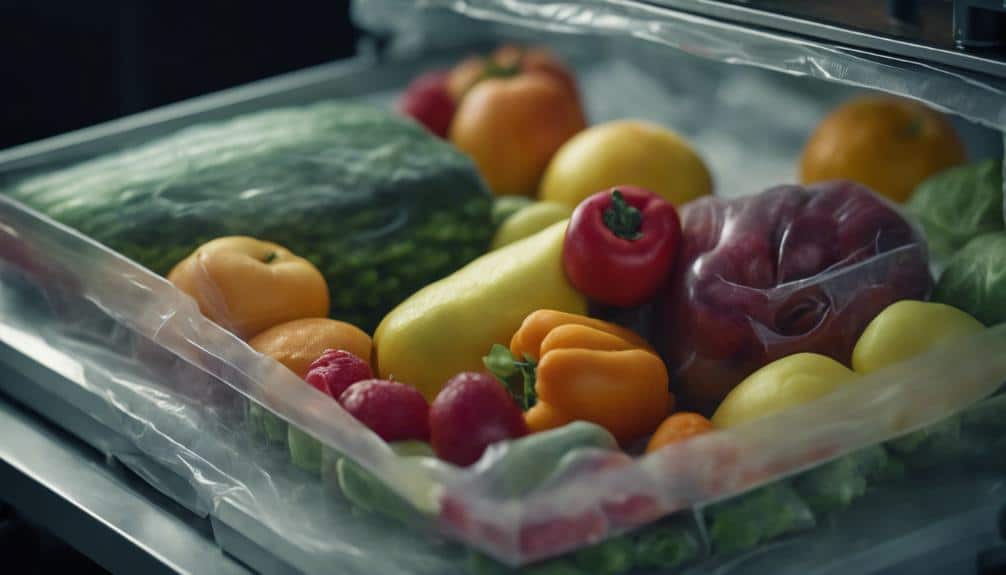
Vacuum sealed food is safe if stored and handled correctly.
Vacuum sealing removes air from packaging, creating an airtight seal. This prevents bacteria and mold growth, extending food’s shelf life.
Properly sealed food maintains freshness and quality longer.
What is the process of vacuum freezing?
Vacuum sealing removes air from packaging, which prevents freezer burn and keeps produce fresh longer.
Vacuum freezing preserves taste, texture, and nutritional value better than traditional freezing methods.
To vacuum seal produce effectively, ensure bags are sealed tightly with no air leaks, leave space between the produce and the seal, and use a vacuum sealer with settings for different produce types.
What is the life of vacuum sealed food?
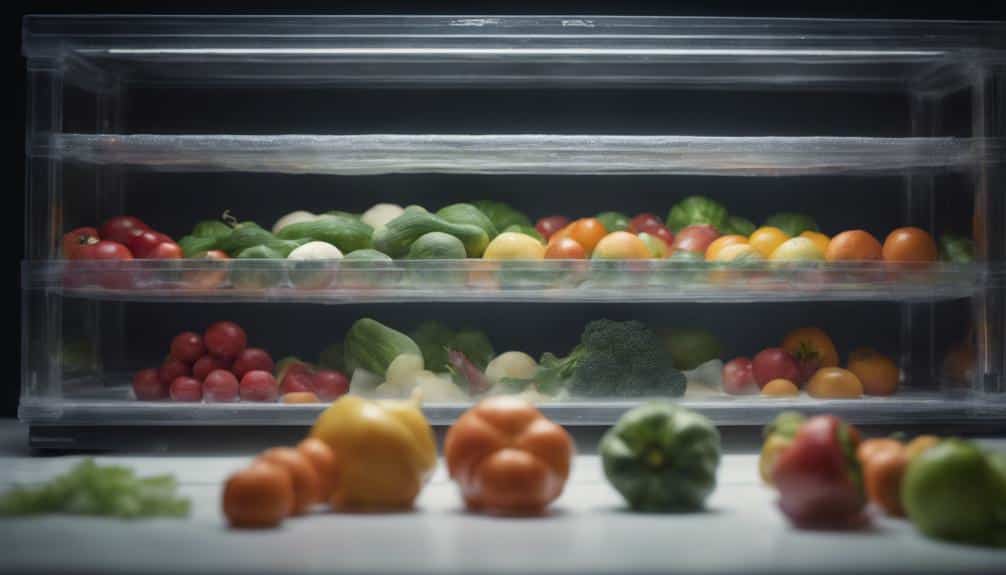
Vacuum sealed food lasts longer than food stored using traditional methods. This technique extends the freshness and longevity of produce, fruits, vegetables, and meats by creating an airtight seal. This seal prevents quick spoiling.
Vacuum sealing also prevents freezer burn. It reduces air exposure, lowering the risk of ice crystal formation that damages taste and texture. This method preserves food nutrients effectively.
However, the initial cost for vacuum sealing equipment and bags can be high. Despite this, the benefits of longer food storage and maintained freshness make it a good investment.
Is vacuum sealing better than freezing?
Vacuum sealing is often superior to traditional freezing for preserving produce. It removes air, reducing freezer burn and keeping the original texture and taste longer.
Vacuum sealing also better retains nutrients in fruits and vegetables over time. To optimize vacuum sealing, ensure the produce is dry to prevent ice formation, label with dates for tracking, and portion produce to minimize repeated thawing and refreezing.
Fruits you can vacuum seal
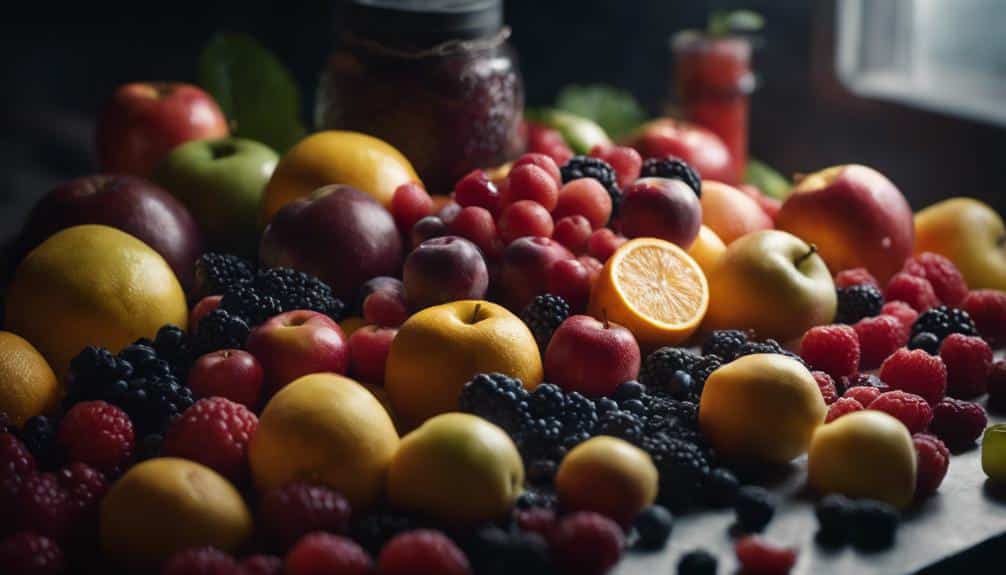
Vacuum sealing preserves freshness and flavor in fruits like berries, apples, and citrus fruits. Here are the best fruits to vacuum seal and how to store them:
| Best Fruits | Storage Tips |
|---|---|
| Berries | Before sealing, spread berries on a baking sheet to avoid crushing. |
| Apples | Apply lemon juice on slices to stop browning, then seal. |
| Citrus Fruits | Remove peel and pith, then seal the segments to keep them fresh. |
Frequently Asked Questions
Can Vacuum Sealing Affect the Taste and Texture of Frozen Produce?
When you vacuum seal frozen produce, taste preservation and texture retention might be affected. The freezing process can alter the produce’s initial qualities. Be mindful of these changes to guarantee the best flavor and texture when using vacuum sealing.
What Types of Packaging Are Suitable for Vacuum Sealing Frozen Foods?
When it comes to packaging options for vacuum sealing frozen foods, consider using freezer-safe bags or vacuum seal rolls. Choose high-quality materials to maintain freshness. Follow recommended freezing techniques and best practices for best results.
Does Vacuum Sealing Affect the Nutritional Value of Fruits and Vegetables?
When you vacuum seal fruits and vegetables, the nutritional impact is generally minimal. Taste changes and texture differences might occur over time. However, vacuum sealing can help preserve the overall quality and freshness of your produce.
Can Vacuum Sealing Extend the Shelf Life of Already Frozen Produce?
Extend your frozen produce’s shelf life by vacuum sealing. Retain flavors with this storage solution. Preserve produce and reduce food waste. Vacuum sealers can aid the freezing process, providing efficient, long-lasting results.
Are There Any Specific Recommendations for Vacuum Sealing Delicate Fruits or Vegetables?
When vacuum sealing delicate fruits or vegetables, maintain freshness by following specific recommendations. Utilize gentle vacuum sealing techniques to preserve texture and flavor. Enhance the shelf life of fresh produce while maintaining its quality.
